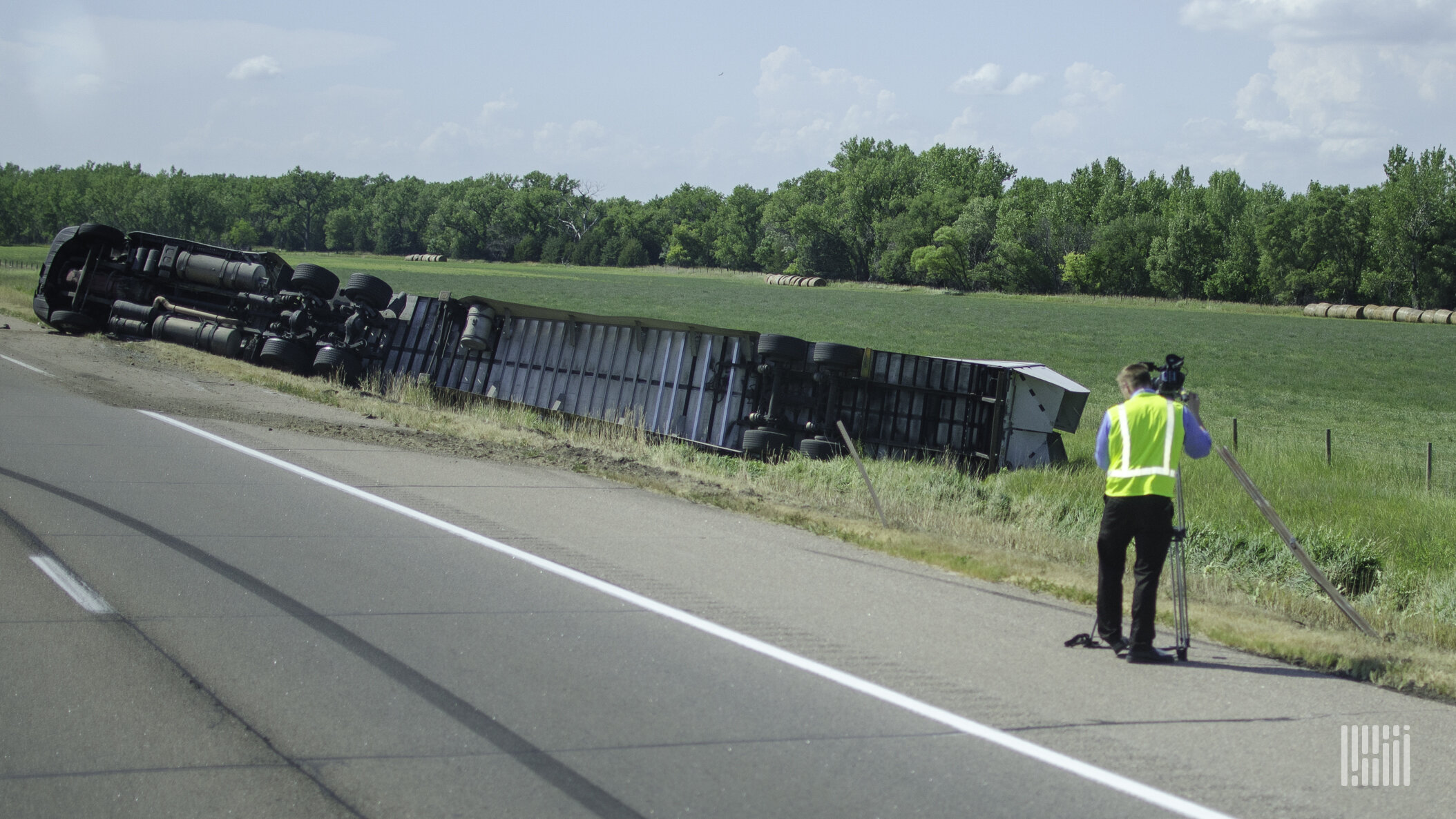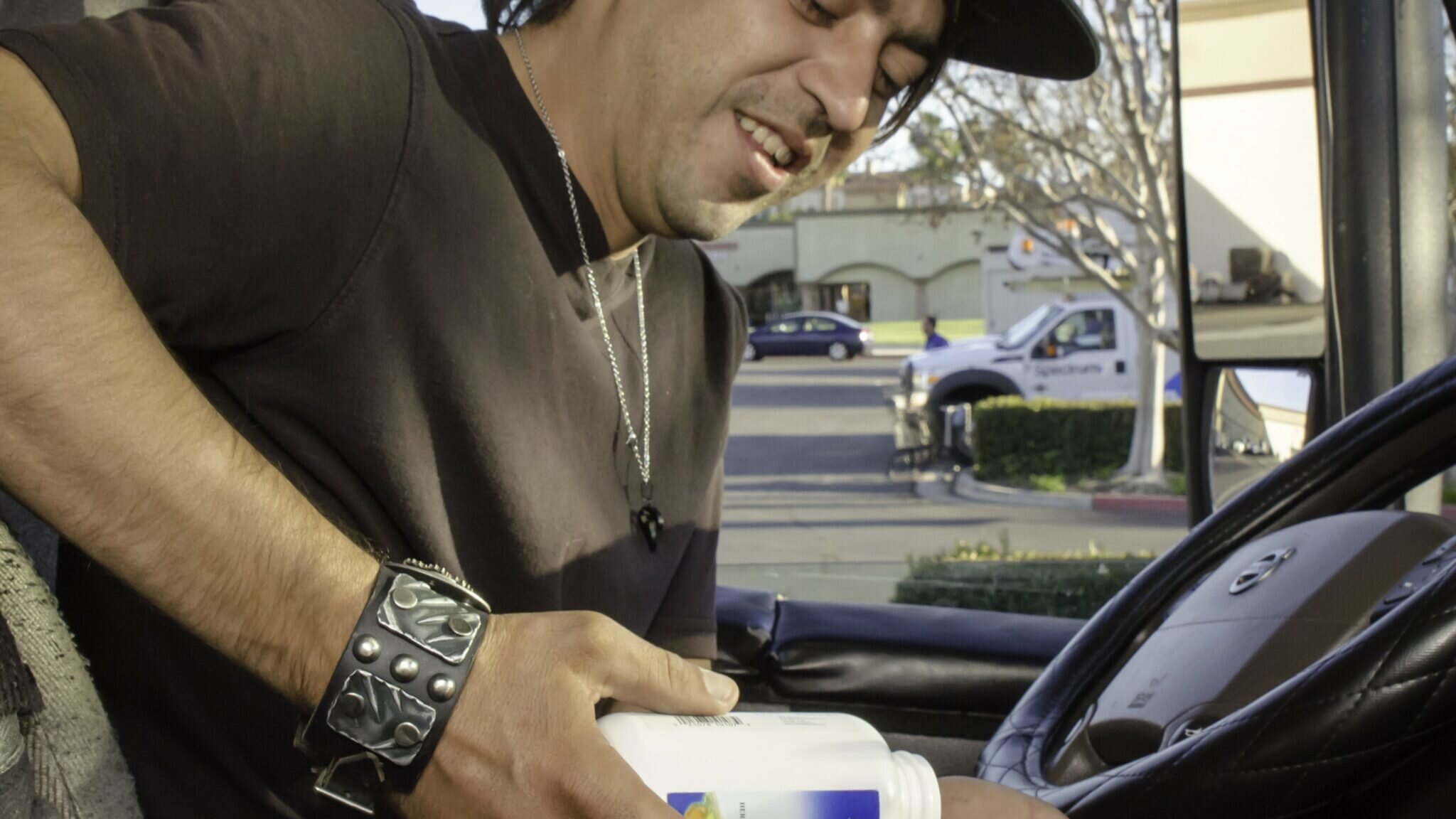
The Louisiana legislature has passed a tort reform bill that Gov. John Bel Edwards is expected sign. (Photo: Jim Allen/FreightWaves)
Bill doesn’t go as far as trucking industry would like, but is a step in the right direction experts say
The road to tort reform in Louisiana appears to be coming to an end.
The betting around the capitol of Baton Rouge is that the state’s governor, John Bel Edwards, will sign tort reform legislation passed by the legislature last week. The state’s trucking association is expressing satisfaction – but not outright joy – at its contents.
Legislation passed in early June was vetoed by Edwards. Legislators went back to work and crafted the latest bill, which incorporates some but not all of the provisions the trucking industry sought.
Doug Williams, an attorney with the Baton Rouge law firm of Breazeale, Sachse & Wilson and general counsel for the Louisiana Motor Transport Association (LMTA), described the legislation as “not as good as we would have liked but better than what we have now.” He also says he believes Edwards will sign the bill.
There are four key provisions in the legislation, Williams said, that should help the trucking industry in Louisiana. The state’s courts have been known as a difficult arena for lawsuits against trucking companies.
The first, according to Williams, is a concept known as “collateral source.”
It is a legal concept that involves the question of whether a plaintiff can be compensated based on the amount of medical expenses billed to them or the expenses actually paid out. According to Williams, a jury will be told the size of the medical billings. But under the legislation, the judge presiding over the trial can knock off 60% of the difference between the medical expenses of the plaintiff and what was billed. That difference is known as the “writedown.”
“So the easiest way to look at it is that instead of the defendant having to pay the entire bill including the writeoff, the defendant will now get at least a 60% discount in the writeoff,” Williams said.
In another provision in the legislation, the “threshold” for a lawsuit to be heard by a jury rather than a judge would be cut to $10,000 from the current level of $50,000. In the earlier legislation, a limit of $5,00 was sought.
As Williams told FreightWaves last month, when the legislation was first moving through the Louisiana legislature, the idea of runaway juries did not align with what defendants’ attorneys in the state had found: it’s often more liberal judges that dish out the biggest awards. By cutting the threshold to $10,000, Williams said, it raises the frequency of when a jury would hear a case instead of a judge. Defendants’ attorneys would often rather face a jury rather than a judge.
Another change in the law that the LMTA is applauding deals with a concept known as “direct action.” It’s a question of a plaintiff trying to bring into the legal discussion the existence of an insurer that might have deep pockets, which could persuade a judge or jury to make a bigger award.
Williams described the changes as “a little bit of help.” The legislation “tightened up the rules” regarding how wide of a discussion the insurance company’s existence can be brought up during the trial.
The fourth provision the state’s trucking association is allowing defendants – like truckers – to introduce into evidence when a plaintiff had not been wearing a seat belt.
“It does sound crazy,” Williams said, of the earlier prohibition of bringing that fact into the trial. “But it’s been the law in most states.” He said the prohibition’s history goes back to the days when the federal government was seeking to have states pass mandatory seat belt laws and the role of those laws in obtaining federal transportation funding.
Regardless of its history, in Louisiana now, if a plaintiff flies out of a vehicle because of lack of a seat belt, that fact can now be introduced in litigation.
The lengthy process was chalked up to “the nature of politics” by Williams. The issue of collateral source was a particular sticking point, he added. Negotiations went on until “the last hour,” according to Williams.





















